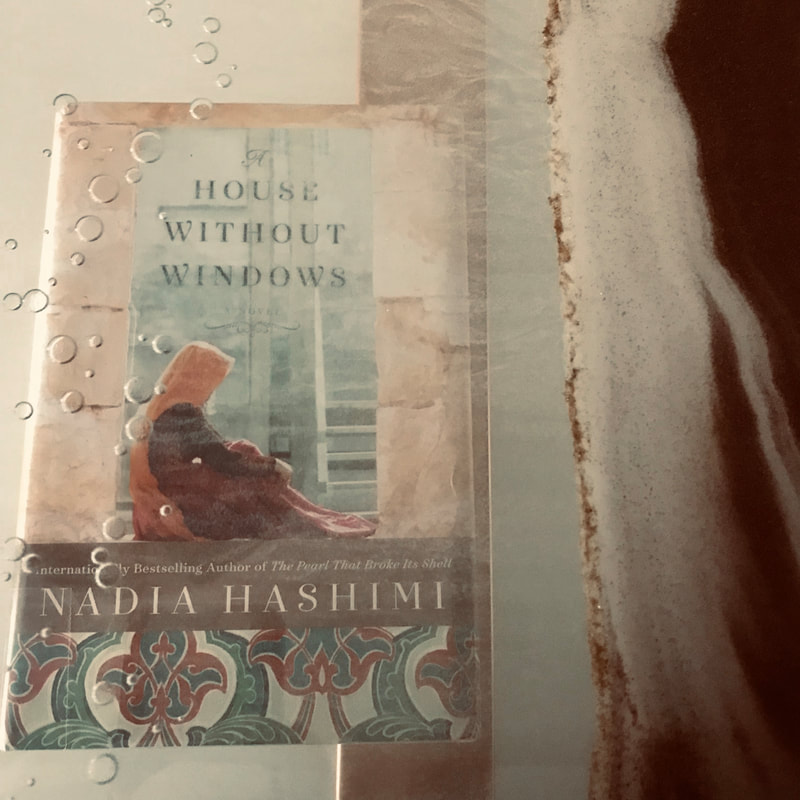|
by Rana Asfour
Zeba, an Afghan woman in her thirties, is found in the courtyard of her home covered in the blood of her husband whose corpse lies beside her with a hatchet pinned to the back of his head. Everyone is quick to conclude what has taken place and Zeba is whisked to the women's jail Chil Mahtab - The house without windows - to await being heard by a judge - a mere formality as due to the existing laws of the land pertaining to a woman killing her husband, the only judgment expected to pass is one sentencing her to die. As she waits, she is assigned to Yusuf, an American Afghani lawyer, who has returned to his homeland from the US to be a part of the rebuilding of the future of a new Afghanistan for Afghanis. Little does he know that this will be his toughest case as Zeba is not only resigned to remain silent regarding the events of that afternoon but is also convinced that it would be in the best interest of her four children's future were she to be executed. “It seemed the truth would be of little benefit. Not to people who deemed her testimony only the fraction of a man's. In a flicker of despondency, the words came to her: Hashimi has written a book that pulls back the veil on the Afghan legal system as it stands after the Taliban have been stripped of power with the aid of Western allies allowing the slow process of rebuilding the nation to begin. As Yusuf investigates Zeba's case we soon find out how deeply entrenched the country is in archaic traditions and tribal laws particularly when it comes to women's rights and the concept of honour. Hashimi skilfully - and tactfully - lifts the lid on the absurdity of many local practices as well as ridiculing the governing bodies who enforce them where the sole aim is not necessarily justice but to 'save face' in a society fixated with its honour, particularly that 'between a woman's thighs'. Hashimi's book is extremely engaging from its first sentence and the writing flows seamlessly so that the reader hardly feels the time pass in the company of its characters. The prose is exquisite and very emotive. In spite of the fact that the events of the crime become quite obvious early on in the novel (although our suspicions are not confirmed until late in the book), the reader is kept totally engaged with the peripheral stories particularly those of Zeba's prison inmates who have been mostly incarcerated for moral crimes ranging from adultery to being seen with a man and even turning down a suitor's advances. Many are happy and content to spend the rest of their days behind the jail walls away from a society that has shown them nothing but cruelty. Audiences are kept captivated by Zeba's intricately woven backstory growing up with a mother who practices Afghani magic, Jadu, and whose husband abandoned her when Zeba and her brother were children, and then later when Zeba is married off to Kamal and the details of a spiralling out of control dark marriage played out right up to the time of his murder. The novel in its entirety is spun as an ode to strong women existing in a country that does its best to stigmatise and suppress them not only by the hands of its men but by also by its women who are complicit in enforcing such oppression either out of fear or to ascertain their own power. Zeba's mother, a fierce character throughout the novel nearly eclipses the protagonist in the passages in which she appears. Zeba herself is both awed and repelled by her mother's abilities and outspokenness, blaming her in part for her father's leaving all those years ago. But Zeba soon learns that not only is her mother's help necessary for her to get out of the mess she is in but that she resembles her more than she cares to admit; her struggle is in coming to terms with that which she has fought against all her life. Another fun and relatable character is Yusuf's mum who although lives in Queens New York and who despite her progressive life and the thousands of miles between her and her son, still manages to orchestrate a wedding match in hopes that Yusuf may marry and settle with an Afghani girl of her choosing. What is notable is that the author based her story on a Human Rights Watch report which means that a lot of the stories the incarcerated women tell as well as the legal proceedings that take place in Zeba's case actually do still happen. That said, when the story is told and done, part of what we take away from this novel is the sense that as incomprehensible and mind-boggling the journey to Zeba's justice may seem to some readers, it is also indicative of a nation navigating its own path in order to find its footing in a present that often seems to demand that it gives up not only parts of its complicated past which holds it back but also others which constitute its identity.
Dr. Nadia Hashimi is a pediatrician and novelist. Her other books include 'The Pearl That Broke Its Shell' (2014), 'One Half from the East'(2016), 'When the Moon is Low'(2015) and 'The Sky at their Feet' (2018)
0 Comments
Your comment will be posted after it is approved.
Leave a Reply. |
Archives
March 2021
|





 RSS Feed
RSS Feed
